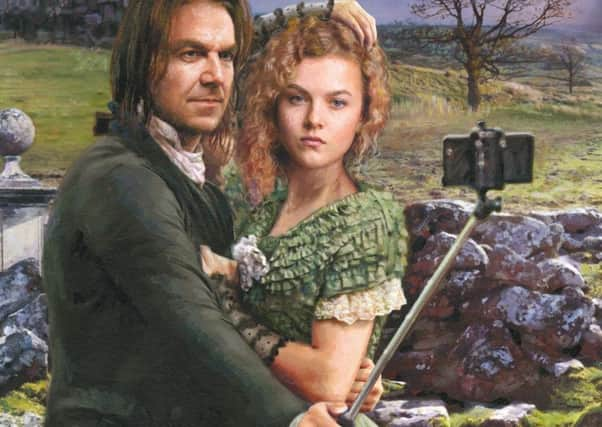Classic novels rewritten to show internet's impact on romance


But now novels by Jane Austen, Emily Brontë and Thomas Hardy have been given a rewrite to show how different the stories would be if modern technology had existed when they were created.
Austen’s Pride and Prejudice, Brontë’s Wuthering Heights and Tess of the d’Urbervilles by Hardy have all been given a dramatic “digital makeover” to show the effects that internet-enabled devices are having on modern romance.
Advertisement
Hide AdThe tales have been reworked to incorporate modern digital themes such as internet dating, social media addiction and wifi problems.
Renowned professor John Sutherland from University College London has worked on the books with a team of writers, showing Austen’s Mr Darcy having his pick of potential “marriage matches” readily available via Tinder and Brontë’s character Nelly creating a Twitter poll to ask followers “Who should Catherine choose?” between Heathcliff and Edgar Linton.
Meanwhile, the adaptation of Tess of the d’Urbervilles claims that if protagonist Angel had not ignored matching with Tess on Tinder, a chain of unhappy events would have been averted.
The ebooks also include bespoke cover artwork featuring the romantic heroes and heroines interacting as they may have done using digital devices, including Heathcliff using a selfie stick to take a picture of himself and Cathy.
Prof Sutherland said: “Even though we’re certainly a nation that uses modern technology to communicate, by inserting these devices and methods of communication into a series of classic romances – believed to be some of the most romantic novels, according to the nation – it highlights just how much they can interrupt a romantic mood.
“A Mr Darcy obsessed with digital media and a Heathcliff that spent his time hashtagging or checking his emails certainly wouldn’t identify them as the romantic heroes we still think of them as today.”
Advertisement
Hide AdThe books were released alongside a poll which found that more than a quarter of Scots plan to say “I love you” via text, instant message or email this Valentine’s Day, while more than a third admit that they told their partner they loved them for the first time via instant messaging rather than in person.
Meanwhile, 54 per cent of people in Scotland admit people are less romantic now than in the days of Austen and Brontë.
Advertisement
Hide AdMore than a third of those polled UK-wide said that they regularly have arguments with their partner caused by digital devices, including a misunderstood message or sending a text to the wrong person.
Meanwhile, 22 per cent of people cite spending excessive time on social media, constantly checking a phone, a misunderstanding caused by a text or instant message and posting embarrassing pictures online as a reason they have broken up with someone.
Emma Ayech, channel director for TV channel Drama, which commissioned the research, said the poll found that distraction by digital devices was ranked in the top three biggest romance killers, alongside bad personal hygiene and bad manners.
She said: “These new modern adaptations show how immeasurably romance has changed as a result of digital technology taking over our lives.”
l The ebooks will be available to download for free at drama.uktv.co.uk/modern-romance.